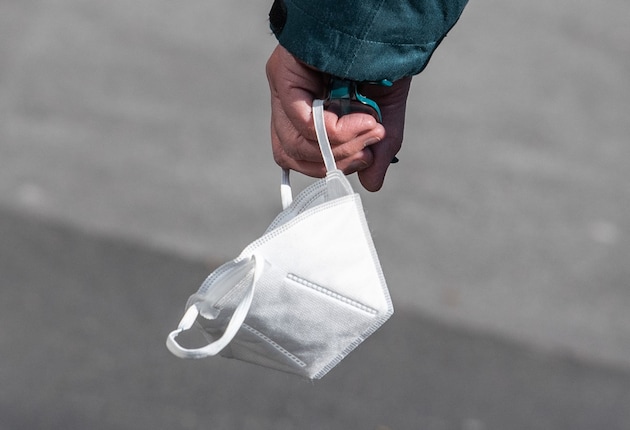In light of the Covid-19 pandemic, the WHO wanted to conclude a pandemic agreement with all 194 member countries, but the negotiations failed. The WHO annual meeting now begins. You can find all the latest news in the Corona ticker on FOCUS online.
Monday, May 27, 2024, 7:30 a.m.: Overshadowed by the preliminary failure of a pandemic agreement, the annual meeting of the World Health Organization (WHO) begins this Monday in Geneva. On Friday evening it was clear that the planned highlight of the meeting had to be cancelled. The ceremonial adoption of an agreement was planned that was intended to prevent global chaos like the corona pandemic in the future. But until the end, the negotiators from the 194 member states were unable to agree on a text that would be accepted by all. Now the conference will decide how things should proceed. Federal Health Minister Karl Lauterbach expressed his confidence: “The negotiations so far have resulted in many points that we can now build on,” he wrote on Platform X.
The global community’s handling of the coronavirus is considered a collective failure. When it came to procuring protective materials that were initially in short supply, such as masks or equipment for nursing staff, countries competed with each other for supplies, and medicines and vaccines were almost only available in rich countries for months. Among other things, the agreement failed to establish better rules for this: how scarce goods can be distributed fairly worldwide and for the benefit of everyone in the event of a new pandemic.
Friday, May 24th, 10:03 p.m.: International negotiations on a pandemic agreement from the World Health Organization (WHO) ended on Friday after two years without consensus. The 194 member countries of the UN organization had set themselves the goal of adopting the pact next week in Geneva at the WHO’s annual meeting. The agreement was intended to prevent global chaos like the corona pandemic and ensure that all countries are supplied with all the necessary protective material, medicines and vaccines in a timely manner. However, diplomats from various countries as well as WHO chief Tedros Adhanom Ghebreyesus expressed optimism that work on the agreement could continue in the future. The co-chair of the negotiating body, the Dutchman Roland Driece, expressed the hope that an agreement would be achieved “in the coming years”. “This is not a failure,” WHO chief Tedros Adhanom Ghebreyesus told delegates in Geneva on Friday evening. “You have really achieved a lot, you have come a long way.” Now it is time to draw lessons from the negotiations so far and move on.
Aid organizations and poorer countries fear that the contract does not guarantee care for the most vulnerable. In richer countries there was resistance from the pharmaceutical industry and from critics who falsely claimed that the WHO wanted to decide whether to impose lockdowns or compulsory vaccinations in the event of a pandemic. There was disagreement on the topics of pandemic prevention and financing, among other things. It was controversial, for example, to what extent medicines or vaccines should be made available to poorer countries free of charge or at low prices. According to WHO estimates, up to 20 million people have died in the wake of the corona pandemic, and almost everyone in the world has died have been affected in some way by the effects of the virus, Tedros said. “The world still needs a pandemic agreement and the world needs to be prepared,” he stressed.
Tuesday, May 21st, 1:21 p.m.: Following the Corona investigation committee, several factions in the Potsdam state parliament have called for further measures to deal with the corona pandemic. The Left called for a study commission at the state level, which should also serve to prepare for future pandemics. The completed investigative committee was a “show event for the AfD,” said the head of the left-wing faction, Sebastian Walter, on Tuesday in Potsdam.
The committee was not concerned with seriously treating the state government’s mistakes, Walter explained. The AfD campaigned with the committee and misused the instrument of the investigative committee. However, there are still plenty of aspects that need to be addressed. Walter cited a slow vaccination campaign in Brandenburg as an example. In other federal states, things went better.
The Greens in the state parliament also called for a study commission – but at the federal level. Among other things, this should take a “broader view” of the cooperation between the federal government, the states and the federal institutions, said Green parliamentary group leader Petra Budke. The instrument of the committee at state level was not suitable.
The CDU parliamentary group considers the results of the investigative committee to be quite relevant. Significant deficits have become particularly clear in health administration, said Jan Redmann, head of the CDU parliamentary group. The level at which further discussion takes place is of secondary importance, especially since further consideration at the federal level is important for preparing for future pandemics.
The spokesman for the Free Voters group, Péter Vida, also confirmed that there were definitely results in the committee that are relevant for future parliamentary consideration. These should be implemented first. Improvement begins with the humility of accepting and acknowledging the results.
Friday, May 10, 2024, 10:47 p.m.: There has been no breakthrough for the time being in the World Health Organization’s (WHO) planned pandemic agreement. Negotiations were supposed to be completed by Friday evening so that the agreement could be adopted at the WHO’s annual meeting in late May/early June. But after two years of negotiations, the WHO’s 194 member states were ultimately unable to agree on a common text.
The agreement was intended to prevent global chaos like the corona pandemic and ensure that all countries are supplied with all the necessary protective material, medicines and vaccines in a timely manner.
Aid organizations and countries fear that the contract in its current draft does not guarantee care for the most vulnerable. In richer countries there was resistance from the pharmaceutical industry and from critics who falsely claimed that the WHO wanted to decide whether to impose lockdowns or compulsory vaccinations in the event of a pandemic. It was controversial, for example, to what extent medicines or vaccines should be made available to poorer countries free of charge or at low prices.
However, hope for a successful outcome by the time of the WHO annual meeting has not yet been completely given up. It was vaguely said that the countries wanted to continue their talks in the next two weeks. However, diplomats in Geneva doubted that a document ready for signature would actually be produced before the start of the conference on May 27th. “I welcome the determination with which all countries want to continue their work and fulfill the mission they have taken on,” said WHO chief Tedros Adhanom Ghebreyesus.
Friday, May 10th, 5:30 a.m.: Former Health Minister Jens Spahn is in favor of the Bundestag reviewing the Corona policy, but this should be broad-based. “This can neither be rose-colored glasses for the federal government at the time nor a people’s court for the corona deniers,” said the CDU politician to the German Press Agency. By the end of the pandemic, 70 to 80 percent of Germans would have supported the Corona policy. “That’s why all perspectives have to be reflected there.” Working on things in order to learn and better prepare for a pandemic or other crisis definitely makes sense.
“My impression is that it would also be good for society,” said Spahn, who was minister at the height of the Corona crisis in 2020 and until the end of 2021. Regarding the question of the framework in which the process of coming to terms with the situation could be organized, he said: “We are a representative democracy. What needs to be discussed belongs in the Bundestag.” Therefore, in his view, a study commission would be a good solution.
Tuesday, May 7, 2024, 7:40 p.m.: The corona vaccine from the Swedish-British pharmaceutical company Astrazeneca, Vaxzevria, is no longer approved in the EU. The withdrawal of market approval, which was decided in March, came into force on Tuesday, according to a document from the EU Commission. Astrazeneca had requested this step itself “for commercial reasons,” the company confirmed in response to a request from the German Press Agency on Tuesday. The background is a lack of demand.
Since the end of the pandemic, several variants of Covid-19 vaccines have been developed, which is why there is now a surplus of updated preparations available. “This has led to a decrease in demand for Vaxzevria, which is no longer manufactured or supplied,” Astrazeneca said in a statement. But they are “incredibly proud of the role Vaxzevria played in ending the global pandemic.”
The EU Commission said in a statement that it was not unusual for companies to request the withdrawal of marketing authorization for medicines or vaccines for commercial reasons. It can be confirmed “that the decision is not based on doubts about the safety or effectiveness of the vaccine,” the statement continued.
Monday, May 6, 2024, 8:05 a.m.: The corona vaccine business is shrinking and shrinking – this is also reflected in Biontech’s books. The company is investing billions in the development of drugs against cancer.
The vaccine manufacturer Biontech will report on the start of the 2024 financial year this Monday. After the significant drop in profits and sales in the previous year, the Mainz company presents its figures for the first quarter. In 2023, the shrinking Covid-19 vaccine business had significantly reduced revenues and profits.
Ultimately, Biontech had a net profit of 930.3 million euros in 2023 – significantly less than the 9.4 billion euros in the previous year. Sales in 2023 were 3.8 billion euros after 17.3 billion in the previous year. For 2024, the company led by co-founder Ugur Sahin expects sales of between 2.5 billion and 3.1 billion euros.
The focus at Biontech has long been on oncological research again, and the first cancer drug is scheduled to be brought onto the market in 2026. In 2023 alone, the people of Mainz spent around 1.8 billion euros on research and development, and in 2024 the total is expected to be between 2.4 billion and 2.6 billion euros.
Thursday, May 3rd, 5:00 a.m.: The state parliament SPD has called on the state government to finally initiate reclaims from controversial mask shops during the corona pandemic. “The Söder government must finally act,” said SPD parliamentary group leader Florian von Brunn on Thursday. He referred to answers from the Ministry of Justice to a request from the state parliament’s SPD. Accordingly, “the examination of reversal claims (…) has not yet been completed”. “Do you assume that in the end you have no chance at all?” asked von Brunn. “That would explain why nothing has been achieved for many months.” Then the state government would finally have to give the citizens pure wine.
According to experts, millions of corona protective masks that the Free State purchased at high prices in 2020 should not have been placed on the market or given to medical staff due to insufficient certificates. After their testimony in a mask investigation committee in the state parliament at the end of 2022, parliament asked the state government to examine claims for repayment.
The Free State still has tens of millions of masks in stock from the Corona period: around 75 million usable masks are currently kept in the pandemic central warehouse, according to the state government’s answer to the SPD request. Complaints procedures are still pending for around 30 million more masks or they have had to be blocked for safety reasons.
You can read older news about the corona pandemic on the following pages.









